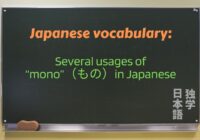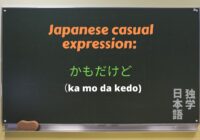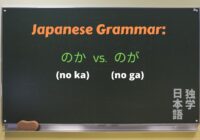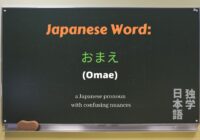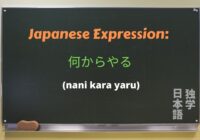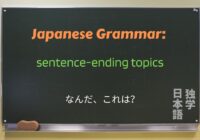Several usages of “mono”(もの)in Japanese
“Mono” in Japanese (usually written in hiragana as もの, and sometimes in kanji as 物) is a word that has the basic meaning of “thing”, generally in the sense of a physical (often tangible) thing. 店でいいものを買ったよ (mise de ii mono wo katta yo) I bought something good (=a good thing) at the store. However this… Read More »
